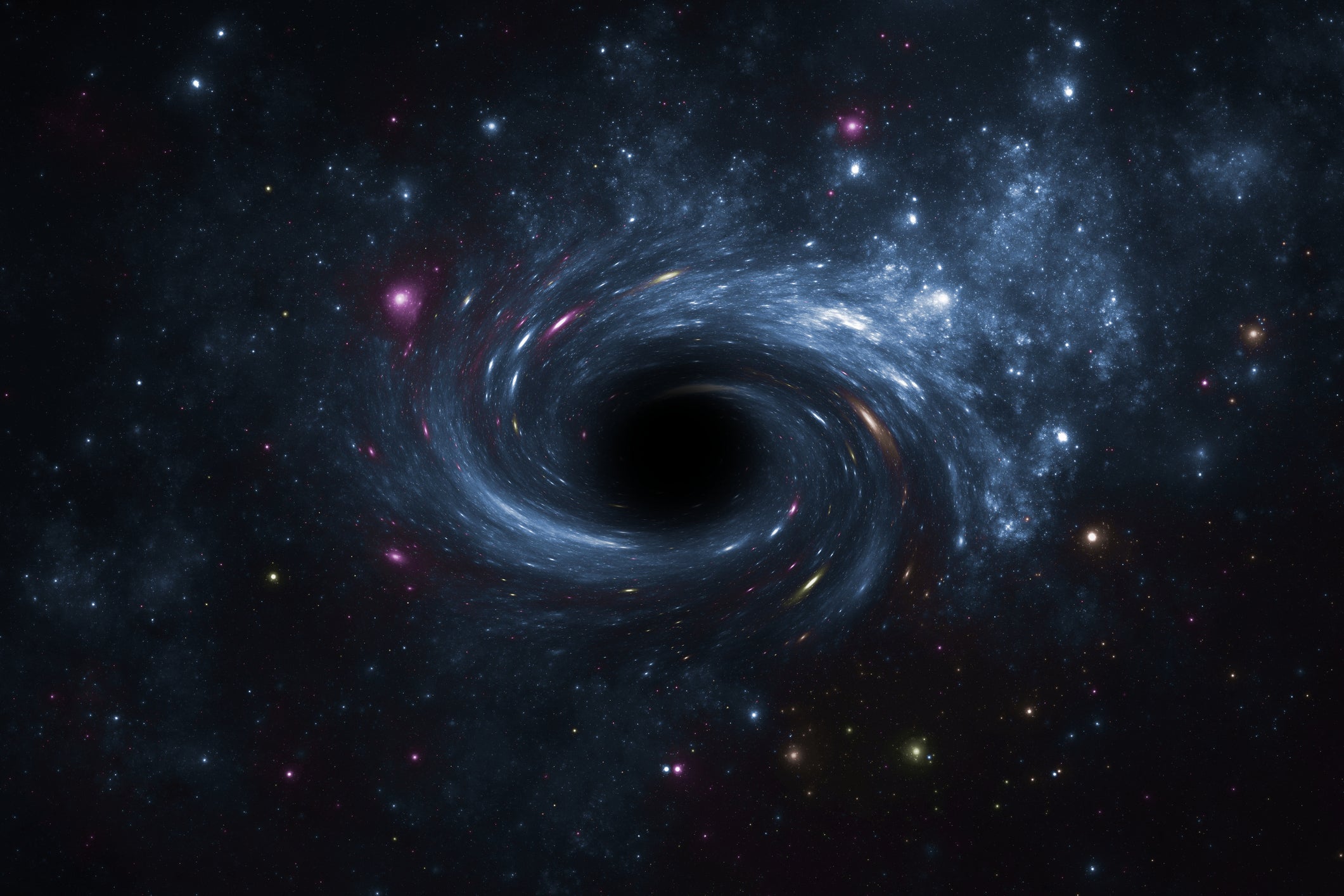Would it be possible to escape from a black hole, and what are wormholes?
We explore the curious questions that science can answer

Would it be possible to escape from a black hole?
It depends how close to the black hole you got and how big the black hole was. Only if you came closer than a distance called the “event horizon” would you definitely not be going home. But this distance varies in size, depending on how much mass the black hole consists of. Black holes really are very dense: to make the Earth, which has a mass of 6 million billion billion kilograms, into a black hole, it would have to be squashed into a sphere that would fit into the palm of your hand. You would have to get pretty close to a black hole like that before you even noticed it.
Why don’t stars appear in pictures from the Apollo landings on the moon?
The lunar surface is very bright, and reflects a lot of light. The television cameras on the moon compensated for this by reducing the amount of light let in through the lens. As a result, stars were not bright enough to be seen.
How far does the Earth travel round the sun?
About 570 million miles (900 million km). The first measurement was made by Aristarchus of Samos in about 270BC. He measured the position of the sun relative to the moon when the moon was half full. From this, he worked out the distance to the sun (since the Earth’s orbit is nearly circular, the distance travelled is 2 pi multiplied by the radius). The number he got was 20 times too small, but very early astronomers often did worse.
Stars twinkle because of the Earth’s atmosphere. Why don’t planets?
Stars are so distant that they appear as point sources of light, so any disturbance in the Earth’s atmosphere is easily visible.
Planets, being closer, appear more as a disc than a point of light. Any disturbance is less visible because if the central part of the image is distorted as it passes through the atmosphere, that distortion probably won’t reach the edge of the disc – so the planet won’t seem to twinkle.
What is the Big Crunch theory in astronomy?
Physicists hold that if the universe contains enough matter, then its present expansion – the result of the original “singularity”, or Big Bang – will one day be halted by the gravity of all its matter, and then begin to contract. This will culminate in a “Big Crunch” in which all matter is crushed out of existence. The key unanswered question is: does the universe contain enough matter to cause this, or will it just continue expanding forever?
How does the technique of using planets to speed up satellites work? Doesn’t this slow the planets down?
The planet’s gravity is used as a “slingshot” to speed up the satellite on its journey. In the process, the planet does suffer a slight loss of its momentum. But the amount is negligible. For the Voyager fly-bys of Jupiter, for example, the planet’s lost energy resulted in Jupiter’s orbit being slowed down by about one foot per trillion years.
What are wormholes, and do they really exist?
In modern physics and cosmology, wormholes are at present just a theory rather than a proven phenomenon. The theory describes them as short cuts in space, associated with black holes. Imagine you leave your house and go for a walk from Wembley to Aberdeen. At Wembley is a black hole into which you disappear. You then immediately appear out of a wormhole in Aberdeen and continue your journey to the local pub. The distance actually travelled in our space is simply the distance from your house to the black hole plus the distance from the wormhole to the pub. The bit of the journey between Wembley and Aberdeen is never actually travelled. Because you’re not actually going very far, it doesn’t take very long. To an outside observer though, you have travelled from Wembley to Aberdeen, and very quickly. That observer, calculating the speed of the journey, would suggest that you had travelled faster than the speed of light. In reality your speed was no faster than your normal walking speed; you just shortened your journey. So wormholes don’t actually speed you up, they just make your journey shorter.






Join our commenting forum
Join thought-provoking conversations, follow other Independent readers and see their replies
Comments